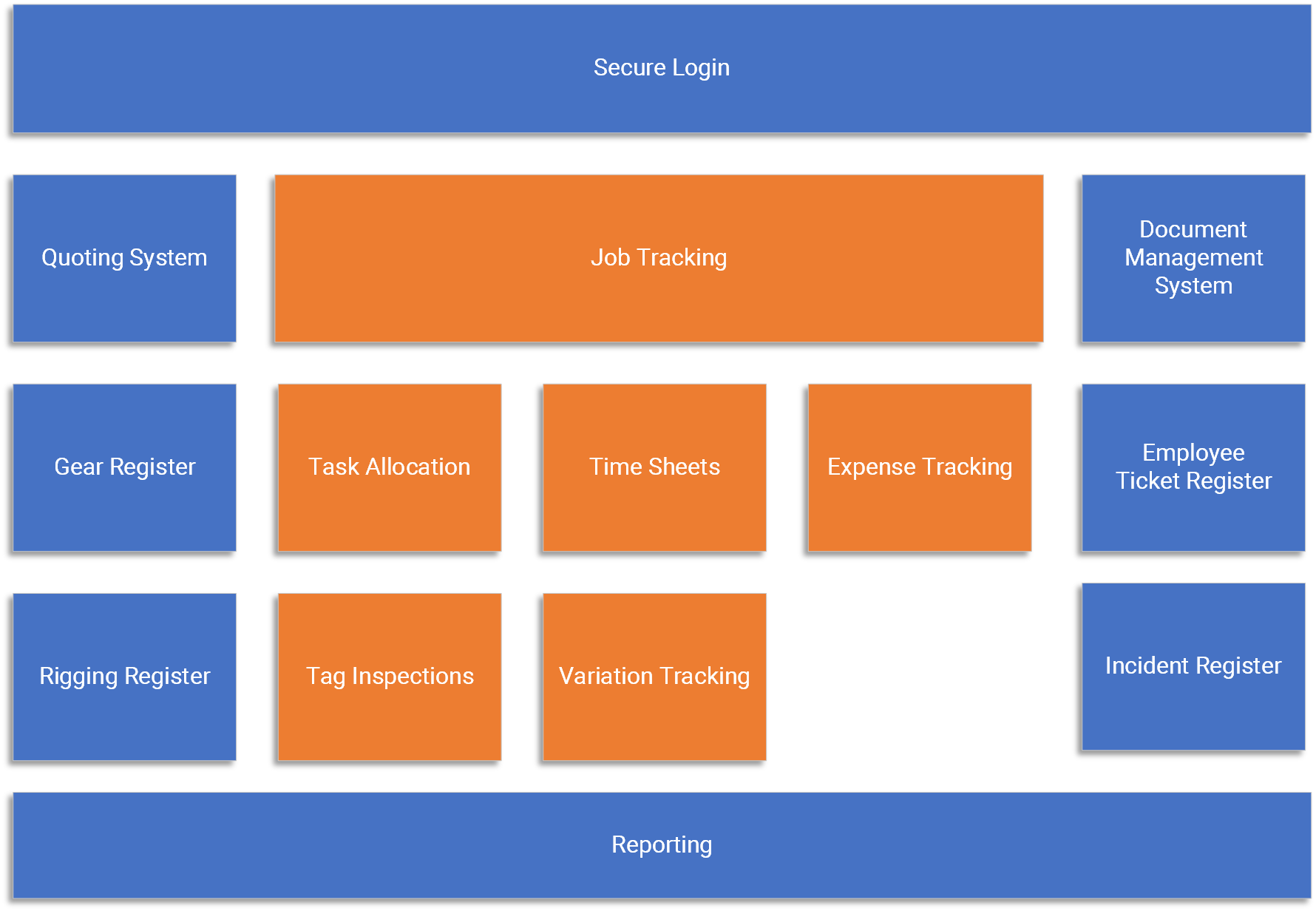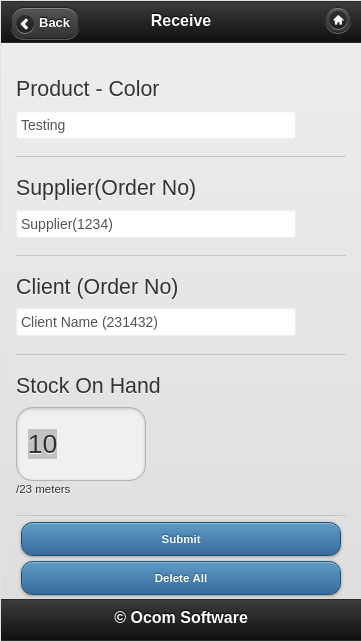Custom Job Management Software That Actually Works
Stop forcing your business into generic software. Get a custom solution that fits your exact workflow and grows with your company.

Stop forcing your business into generic software. Get a custom solution that fits your exact workflow and grows with your company.

We specialize in creating custom software solutions that eliminate inefficiencies and streamline your entire workflow.
Custom web and desktop applications tailored to business workflows
Focus: workflow optimization and business process automation
Learn MoreCross-platform mobile solutions for customers, suppliers, field teams and managers
Focus: field team productivity and real-time data access
Learn MoreSeamless connection between existing systems and new software solutions
Focus: seamless data flow and system unification benefits
Learn MoreCustom dashboards, analytics, and business intelligence solutions
Focus: data-driven decision making and business intelligence capabilities
Learn MoreDigital form solutions to replace paper-based processes and streamline data collection
Focus: paperless workflows and data accuracy improvements
Learn MoreA system for controlled documents for ISO9000 compliance and shared documents for small to large organisations
Focus: ISO compliance and centralized document control
Learn MoreUnlike off-the-shelf software, our solutions are built specifically for your business processes, ensuring perfect fit and maximum efficiency.
Built exactly for your workflow, not a generic one-size-fits-all solution.
Software that grows with your business, not against it.
Dedicated support team that understands your system inside and out.
Solutions designed to pay for themselves through efficiency gains.
Our expertise spans across multiple industries, with deep understanding of sector-specific challenges and solutions.
Don't just take our word for it. Here's what business owners say about working with us.
"We are fortunate to have the Ocom Team working with us on our online system. It can be a challenge to verbalise your IT needs, when this is not your area of expertise however our experience has been enhanced by Scott's ability to hear, analyse and suggest solutions in common language that assists us to make decisions."
"We engaged OCOM to provide a customised platform to simplify the process of broadcasting pertinent information to residents using a web server and user interface. The project brief was significant, but well simplified by the OCOM team. The concept brief to completion process was well documented and delivered ahead of our expectations with a user friendly and self explanatory web interface that has been trouble free and readily adaptable to various client requirements."
"Ocom has been a huge help in growing our business! Scott designed and developed a software program that suited our company, Buds to Blooms, perfectly. Nothing was too difficult for Scott. I highly recommend Scott to any business."
"When it comes to choosing a strategic partner, we are very fussy. Ocom, made the choice easy for us - a customer focused company that delivers an exceptional customer experience every time."
See how we've helped businesses like yours overcome operational challenges and achieve significant improvements.

GGC Industries faced the significant challenge of sharing critical business data across multiple locations throughout …

Many businesses struggle with keeping all their job information organized and accessible to everyone who needs it. …

There were a lot of Stock control systems but none of them worked for our client. Some were too complex, others not …
Stop wasting time on software that doesn't fit. Get a free consultation to discover how custom software can revolutionize your workflow.